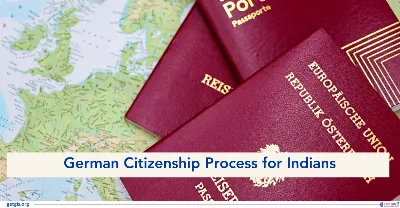Master’s in Artificial Intelligence in Germany 2025-26: Top Universities, Eligibility & Fees
Updated On
-
Copy link
Explore the informative insights regarding the masters in artificial intelligence in Germany and make your decision on immigrating to Germany for a great career
Limited-time offer : Access a free 10-Day IELTS study plan curated for you

Table of Contents
- Why Study for a Master’s in AI in Germany?
- Course Curriculum of Master’s in AI in Germany 2025-26
- Best Universities for a Master’s in Artificial Intelligence in Germany 2025-26
- Eligibility Criteria for Masters in Artificial Intelligence in Germany 2025-26
- Scholarships for Masters of Artificial Intelligence in Germany
- How to Apply for AI Master's in Germany (2025)
- Job Prospects After Master’s in Artificial Intelligence Germany 2025-26
- Have A Great Immigration Experience With GetGIS!
- Useful Links!
Germany stands as a popular destination if you want to pursue after Master’s in Artificial Intelligence, offering a wide range of programs that are taught in English at various universities. All these programs offer a combination of theoretical knowledge with practical application, along with specialisations like robotics, data science, and AI for sustainability.
Universities like Deggendorf Institute of Technology, GISMA Business School, Saarland University, to name a few, offer a broad spectrum of Master’s in Artificial Intelligence programs in Germany in 2025-26. Upon graduation, you can benefit from an 18-month post-study work visa, providing ample time to launch a career in Germany’s thriving tech sector.
Why Study for a Master’s in AI in Germany?
International students who wish to study for a Masters in artificial intelligence in Germany are lucky with many benefits. The below-mentioned points justify the benefits and scope of pursuing a masters in AI in Germany.
- There are 107 study programs offered in English at 53 universities in Germany, including 17 internationally ranked institutions.
- International students are often not required to pay tuition fees at many German universities.
- The global artificial intelligence market is projected to grow at a CAGR of 36.1% by 2024.
- It is estimated that the industry's value will reach US$ 3,061.35 billion by the end of 2024.
- Industries such as Automotive, Robotics, and Aviation are among the most in need of skilled professionals in the AI field.
Course Curriculum of Master’s in AI in Germany 2025-26
It is essential to know about the major streams and courses where you can specialize in choosing the right masters in artificial intelligence in Germany. So here is an overview of MS in artificial intelligence courses in Germany. Explore the table below to gain more valuable insights.
|
Course Name |
Description |
|
Master of Science in Artificial Intelligence |
Comprehensive coverage of AI, including machine learning, deep learning, robotics, and natural language processing. Emphasizes practical projects and research. |
|
Master of Science in Embedded Systems Engineering (EMSE) with Specialization in Intelligent Systems |
Focuses on embedded systems and integration with intelligent technologies such as computer vision, autonomous systems, and IoT. Includes real-world projects and research work. |
|
Master of Science in Autonomous Systems |
Explores design, implementation, and control of autonomous systems like robotics, drones, and self-driving vehicles. Training in machine learning, computer vision, and sensor fusion. |
|
Master of Science in Machine Learning |
Centered on both theoretical and hands-on aspects of machine learning: pattern recognition, data mining, optimization, and applied research projects. |
|
Master of Science in Data Engineering for Industrial Applications (DEIA) |
Specializes in industrial-scale data engineering (big data, cloud computing, AI for manufacturing/logistics). Involves tight collaboration with industry partners. |
Best Universities for a Master’s in Artificial Intelligence in Germany 2025-26
After knowing about the courses the next step to make a decision is choosing the best universities in Germany for artificial intelligence. The table below gives you clear insights into the best universities for MS in artificial intelligence in Germany with the average tuition fee charged for international students.
|
University |
Program |
Avg. Tuition Fee (EUR) |
Avg. Tuition Fee (INR) |
|
Ansbach University of Applied Sciences |
MA Applied Artificial Intelligence and Digital Transformation |
10,000 |
9,00,100 |
|
Deggendorf Institute of Technology |
MS in Artificial Intelligence and Data Science |
10,000 |
9,00,100 |
|
GISMA Business School |
MS in Data Science |
11,550 |
10,39,616 |
|
Saarland University |
MS in Data Science & Artificial Intelligence |
12,500 |
11,25,125 |
|
SRH Berlin University of Applied Science |
MS in CS with a Focus on Big Data and AI |
13,610 |
12,25,036 |
|
Technical University Munich |
MS in Robotics, Cognition, Intelligence |
9,000 |
8,10,090 |
|
University of Dusseldorf |
Masters in AI and Data Science |
15,000 |
13,50,150 |
|
University of Erlangen-Nuremburg |
Masters in AI |
8,544 |
7,69,045 |
|
University of Freiburg |
MS in Computer Science (AI specialization) |
9,500 |
8,55,095 |
Eligibility Criteria for Masters in Artificial Intelligence in Germany 2025-26
Since a Master in AI in Germany is a course related to computer science and technology, eligibility under each university has different criteria to be satisfied by international students. The table below gives you clear insights into the best universities for MS in artificial intelligence in Germany.
|
University |
Eligibility Requirement |
Language Proficiency |
|
IUBH University of Applied Sciences |
Bachelor’s degree with knowledge of Programming (Python), Advanced Mathematics (73-76%) |
IELTS: 6.0 | TOEFL: 80 |
|
SRH Berlin University of Applied Science |
Bachelor's in relevant subject, Interview |
IELTS: 6.5 | TOEFL: 87 |
|
GISMA Business School |
Bachelor's in a relevant scientific subject |
IELTS: 6.0 |
|
TUM (Technical Univ. of Munich) |
Bachelor’s in a relevant subject. For the German track: TestDaf (4 each), Goethe B2, or DSH II. For English: TOEFL: 88 | IELTS: 6.5 |
IELTS: 6.5 | TOEFL: 72-94 |
|
Saarland University |
Bachelor’s in relevant subject, knowledge of data science, machine learning, advanced mathematics, theoretical informatics |
IELTS: 7.0 | TOEFL: 95 |
|
Deggendorf Institute of Technology |
Bachelor’s in AI or closely related courses; data science should be integral part of UG |
IELTS: 6.5 | TOEFL: 72-94 |
|
University of Freiburg |
4-year bachelor’s; GRE if score less than 80% |
IELTS: 7.0 | TOEFL: 94 |
|
University of Dusseldorf |
Bachelor’s in relevant course with at least 75% or more |
TOEFL iBT: 80 | pBT: 500 | IELTS: 6.0 |
|
Ansbach University of Applied Sciences |
Bachelor’s with 70% or more |
TestDaf, DSH, Goethe |
|
University of Erlangen-Nuremberg |
Technical/advanced knowledge of math, CS, and related fields; GRE recommended |
TOEFL pBT: 560 or equivalents |
Documents Required for Masters in Artificial Intelligence Germany
Once the basic eligibility requirements are met, candidates must submit the following documents to fulfill the admission criteria for pursuing artificial intelligence courses in Germany. Please review the list below and create your checklist.
- Academic transcripts from previous education
- High school diploma or equivalent
- Statement of Purpose Explaining your motivation
- Cur vitae/resume
- Letters of recommendation
- Preliminary documentation by uni-assist (if applicable to the university)
- Proof of such as a passport or ID
- Medical certificate
- German student visa
Scholarships for Masters of Artificial Intelligence in Germany
Pursuing a masters in Artificial Intelligence in Germany may seem like a small investment but you must plan your finances well. Below, we’ve curated the most relevant scholarships for 2025-26, including DAAD-funded programs, university grants, and private-sector awards. Discover eligibility criteria, coverage amounts, and key deadlines to secure financial support for your AI studies in Germany!
|
Scholarship Name |
Provider/Institution |
Eligibility & Focus |
Coverage/Amount |
|
DAAD Scholarships |
DAAD |
International students in various fields, incl. AI |
Monthly allowance, travel, etc. |
|
DAAD relAI Master's Scholarship |
TUM & LMU (via DAAD) |
Master's in AI (focus on reliable AI); TUM/LMU admits only |
€934/month for 24 months |
|
Deutschlandstipendium |
Universities (Federal/Private) |
All students, including internationals; merit-based |
€300/month (typically) |
|
Bayer Foundation Scholarship |
Bayer Foundation |
Outstanding students, innovation focus |
Amount varies |
|
Landesgraduiertenstipendien |
German federal states |
Postgraduate students (state-specific) |
Varies by state |
|
University-Specific Scholarships |
TUM, LMU, etc. |
International/master’s students; merit/need/field |
Varies |
|
DAAD AInet Fellowship |
DAAD |
Early-career AI researchers (postdoc/PhD) |
Networking, travel stipend |
|
External Scholarships |
Private foundations, orgs. |
Varies; often STEM/AI focus |
Varies |
How to Apply for AI Master's in Germany (2025)
In order to secure admission to pursuing artificial intelligence courses in Germany, it is essential to follow these steps for a successful result. Have a look at these essential steps.

- Step 1 - Research Programs: Start by researching the various universities in Germany offering Master's programs in Artificial Intelligence. Consider factors such as curriculum, faculty, research opportunities, and university rankings.
- Step 2 - Check Admission Requirements: Review the admission criteria for each program, including academic qualifications, English language proficiency tests (e.g., TOEFL, IELTS), GRE scores (if required), letters of recommendation, and a statement of purpose.
- Step 3 - Prepare Application Documents: Collect and prepare all necessary application documents, such as transcripts, diplomas, CVs or resumes, motivation letters, and any other specific documents required by the universities.
- Step 4 - Application Platform: Identify the application platform or portal used by the universities for submitting applications. Create accounts if necessary and complete all required sections of the application form accurately.
- Step 5 - Submit Application: Complete and submit your application before the deadline. Ensure that all the required documents are attached and any application fees are paid.
- Step 6 - Follow Up: Keep track of your application status and follow up with the university if needed. Additionally, consider applying for scholarships or financial aid if available.
Job Prospects After Master’s in Artificial Intelligence Germany 2025-26
Most international students get motivated by knowing the career prospects in their feild. In order to do so, the table below gives you clear insights into the job prospects available after pursuing a Masters in artificial intelligence in Germany.
|
Job Role |
Avg. Salary (EUR) |
Avg. Salary (INR) |
|
Machine Learning Engineer |
70,000 |
63,00,700 |
|
Data Scientist |
65,166 |
58,65,592 |
|
AI Research Scientist |
62,400 |
56,16,624 |
|
Robotics Engineer |
92,021 |
82,82,810 |
|
Natural Language Processing Engineer |
76,291 |
68,66,953 |
|
Computer Vision Engineer |
73,059 |
65,76,041 |
|
AI Product Manager |
73,000 |
65,70,730 |
|
AI Consultant |
79,992 |
72,00,080 |
Know the Complete Information on German visa Types & Requirements and clear your doubts.
Have A Great Immigration Experience With GetGIS!
In today's fast-paced world, artificial intelligence (AI) is becoming increasingly essential. The ability to communicate and rectify errors made by AI will likely be a significant aspect of the next generation's work. Considering the information available regarding pursuing a Masters in Artificial Intelligence Germany and leveraging the assistance of GetGIS, you can make an informed decision about advancing your career in this field.
Moreover, our support extends beyond Germany. We provide comprehensive guidance and assistance for individuals looking to immigrate to other countries such as Canada, Australia, Sweden, France, and the Netherlands. By taking advantage of our services, you can navigate the process of immigrating to these countries with confidence and ease. Book Your Free Consultation!
Useful Links!
Limited-time offer : Access a free 10-Day IELTS study plan curated for you

Frequently Asked Questions
Is a Master's in AI useful?
Which master's degree is best for AI?
Who is the strongest AI in the world?
Which country has the best AI?
Who earns more CA or software engineer?
Which country offers the highest salaries for AI engineers?





